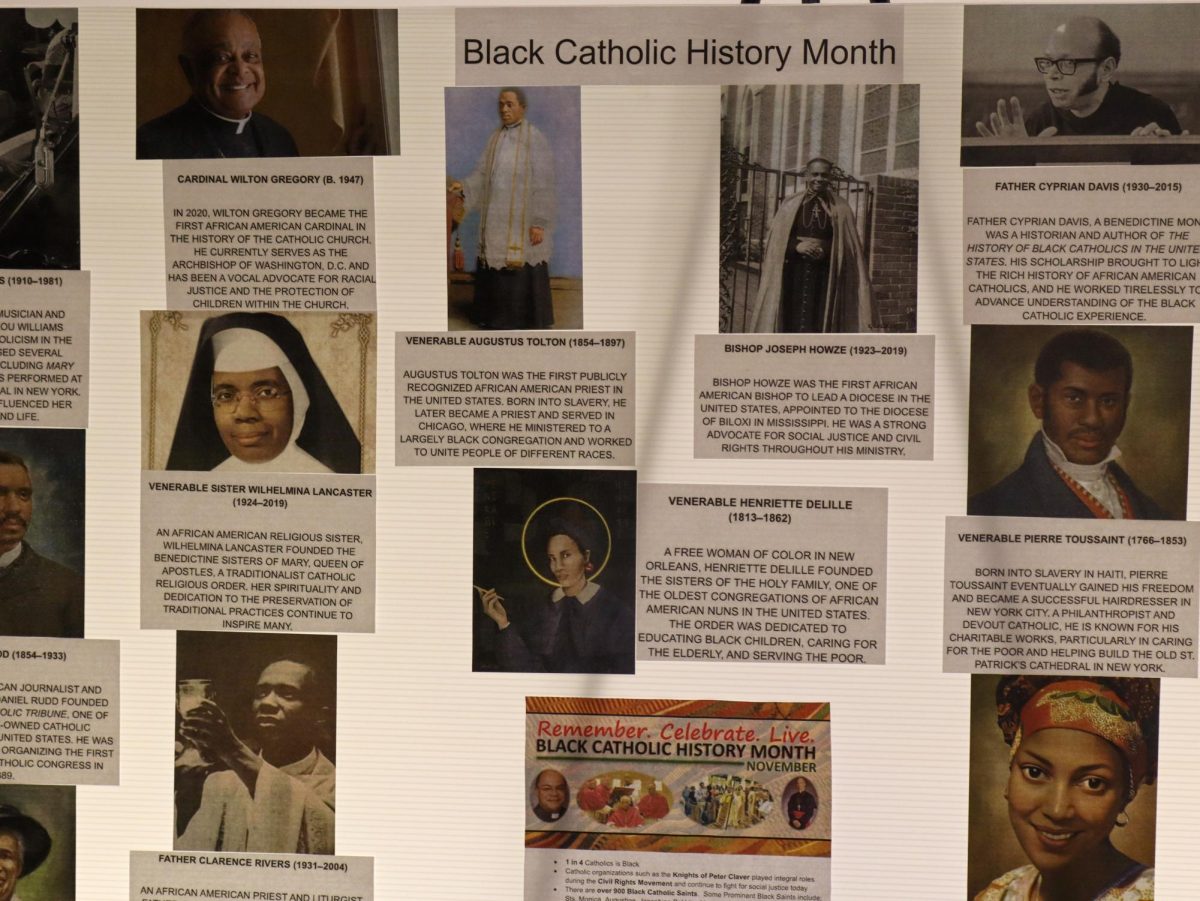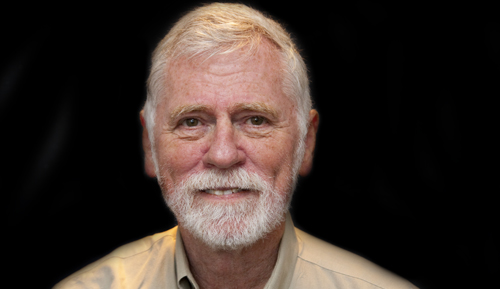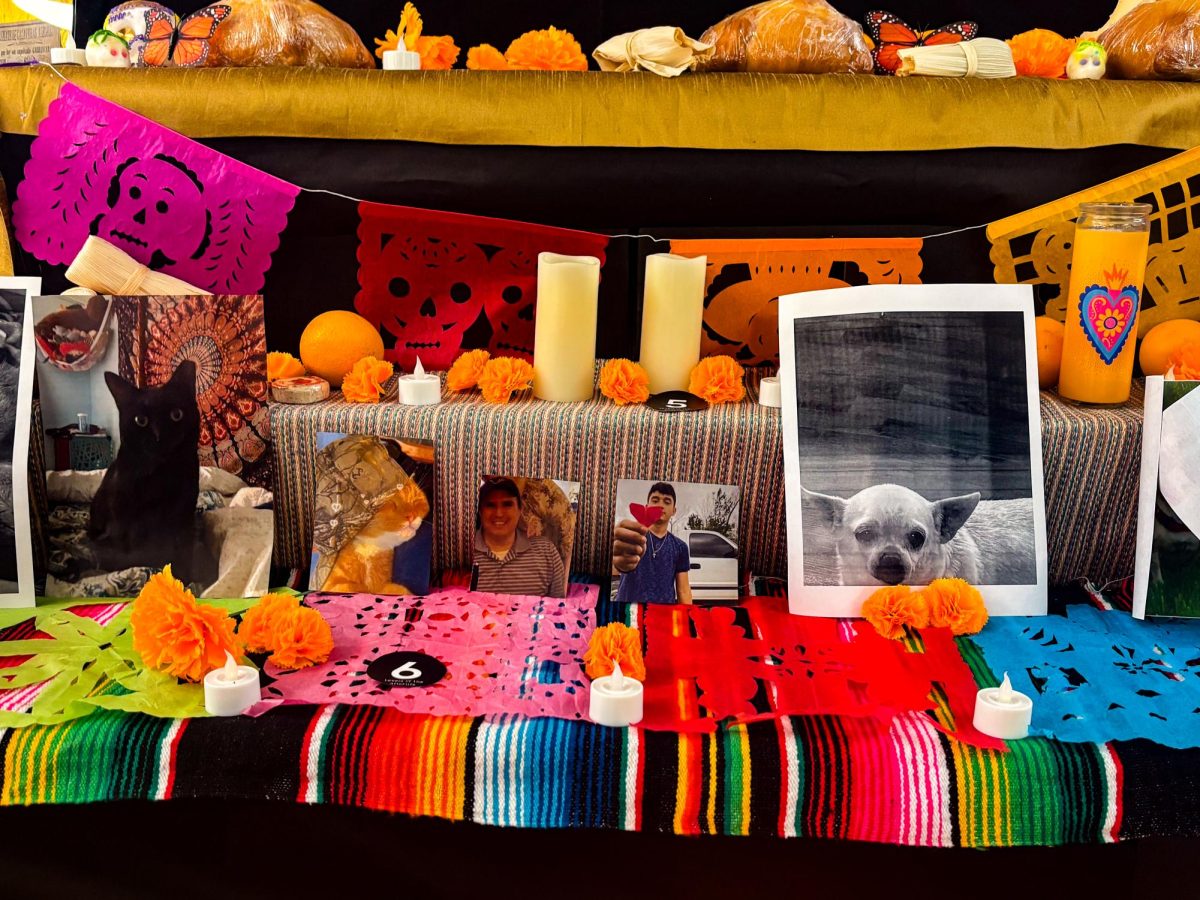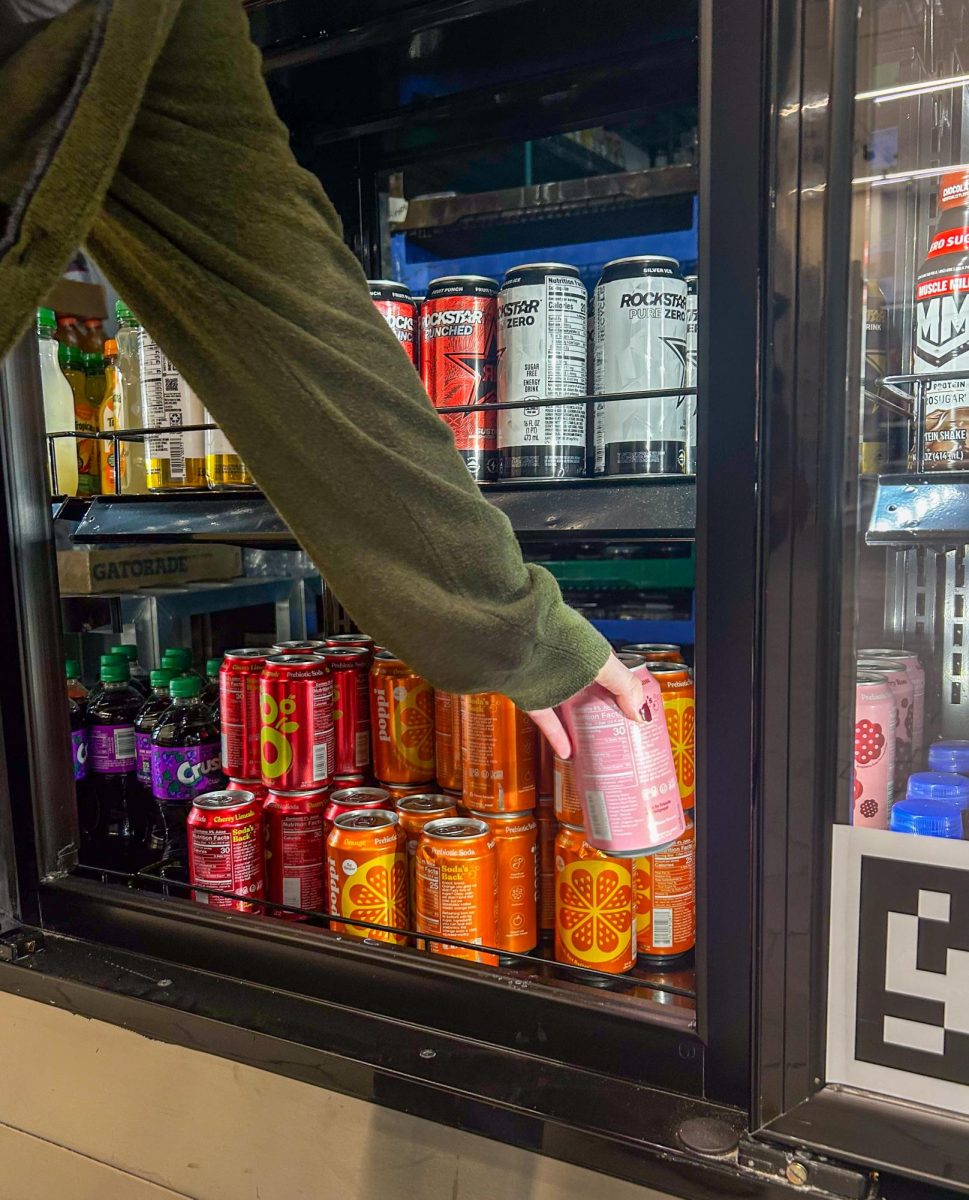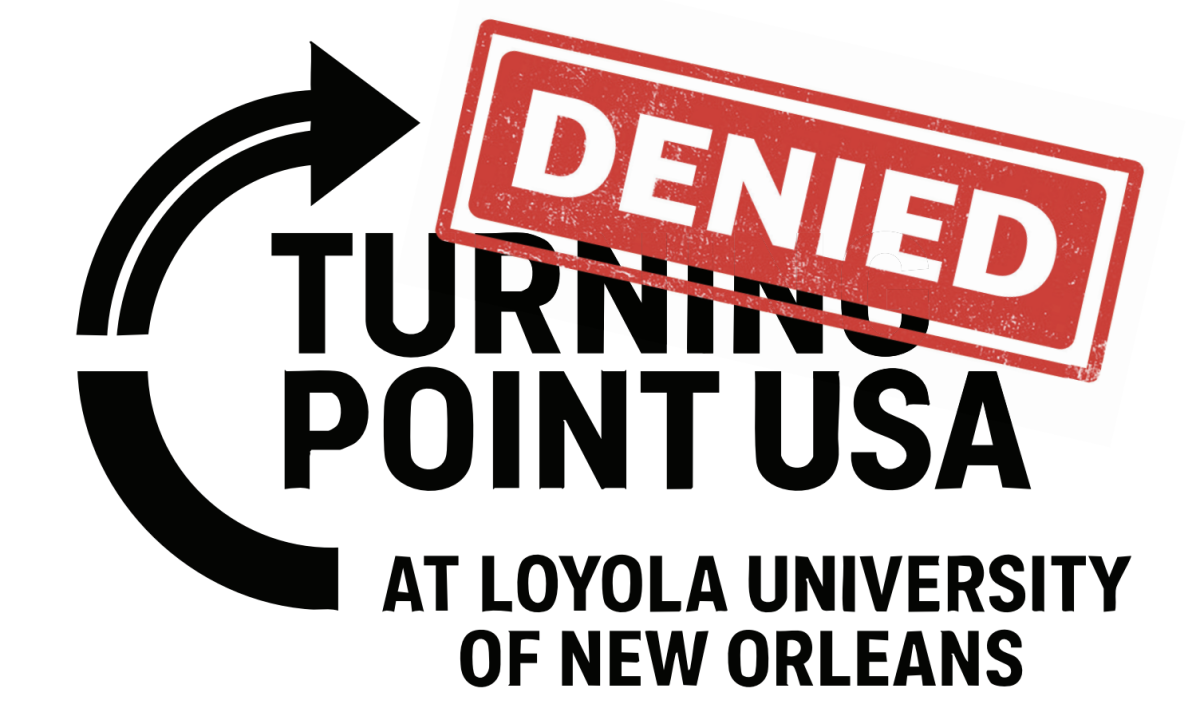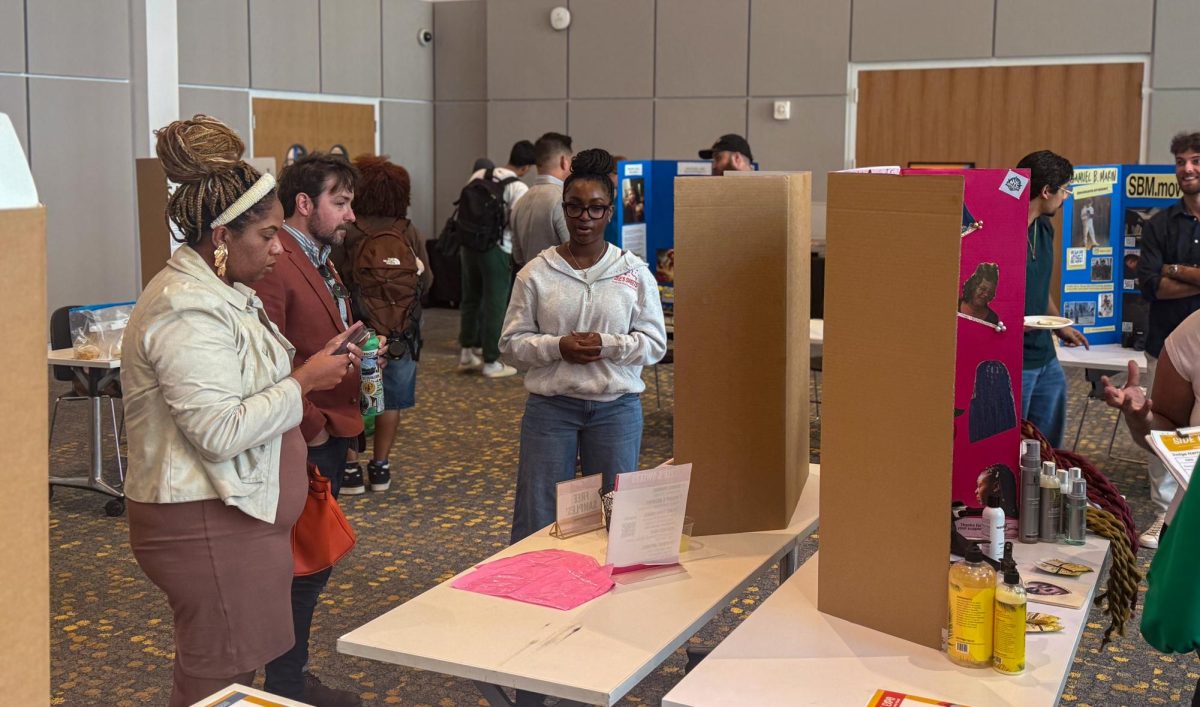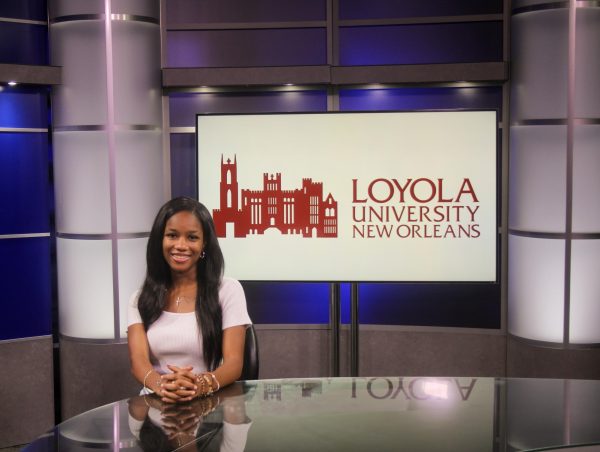The story of Danielle Metz—once sentenced to triple life in prison for nonviolent drug offenses—had just played out before an audience at Loyola College of Law. A moment later, applause erupted, not just for the film, but for Metz herself, who sat in the room, ready to share her journey beyond incarceration.
Last week, the Jesuit Social Research Institute and the Loyola Student Bar Association hosted a screening of Commuted, the award-winning documentary that follows Metz’s life after serving 23 years before receiving clemency from President Barack Obama. The film explores her struggles to reconnect with family, rebuild, and redefine her future after decades behind bars.
What made the evening even more powerful was the post-screening discussion with Metz. As she spoke, the weight of her words settled over the audience.
“Prison didn’t just take my freedom,” Metz said. “It took years with my children, my mother, my family, but I was determined that it wouldn’t affect my future.”
Marcus Kondkar, an advocate for criminal justice reform, believes events like these help reshape public perceptions.
“We have a tendency to silence people in prison and render them invisible,” Kondkar said. “One of the consequences of designing prisons to keep people in is that they keep the rest of us out, and the people in them remain an abstraction to us. If we want to understand the experiences of those we have ‘othered’ and make empathetic connections with them, we must visit with them, hear their stories, and see them as whole human beings.”
Audience reactions highlighted the power of that connection. Annie Phoenix, who attended the screening, recalled a striking moment from a student.
“One of my students was very surprised to see Danielle actually in the building for the event,” Phoenix said. “For me, that highlights that this isn’t just a movie—this is the story of a real person from our community and the challenges that her family endured in fighting for her freedom.”
Danielle’s presence at the event reinforced the documentary’s central message—the human cost of mass incarceration. Professor Nicole Tuchinda emphasized this point, recalling Metz’s words both in the film and in the discussion.
“Danielle mentioned in the film that ‘we are human,’ and after the film, she said that during incarceration, she and other incarcerated individuals were treated as if ‘we weren’t human, we were just a number,” she said.
Tuchinda said incarceration dehumanizes individuals and extends harm beyond prison walls.
“The film itself, Danielle’s openness to sharing her story, and her presence helped to highlight the humanity of people who experience incarceration, as well as the harmful effects that ripple widely and deeply from it which affect their loved ones and their communities,” she said.
The discussion also touched on the harsh realities of sentencing disparities and systemic barriers to reentry. Metz described how she never believed she could receive a triple life sentence for a nonviolent drug crime tied to her husband’s actions.
“It’s unbelievable circumstances,” Phoenix said. “But unfortunately, she was a victim of a society-wide effort to criminalize and target Black communities.”
Tuchinda urged attendees to reflect on the larger implications of mass incarceration.
“I hope that students ask themselves what mass incarceration is really doing and whether it is worthwhile,” she said. “I hope that students realized the value of listening to everyone’s story, not just the stories that seem to justify existing law. Everyone’s life matters.”
She also said she hoped the event would inspire students to seek alternatives to incarceration, such as restorative justice, diversion programs, and youth development initiatives.
“Prison is not the answer for any problem,” Tuchinda said, echoing Metz’s own words. “Prison just causes further harm.”
According to Kondkar, Loyola frequently hosts discussions on incarceration and legal reform, including past projects like The Visiting Room Project.
“You can keep up with them on JSRI’s website,” he added.
Looking ahead, Loyola is fostering more opportunities for student engagement in reentry initiatives.
Kondkar recently partnered with Andrew Hundley, director of the Louisiana Parole Project, to create new programs aimed at supporting returning citizens.
“They do excellent work,” Kondkar said. “We hope to get things started in Fall 2025.”
Phoenix hopes law students and attendees walk away reflecting on the deeper meaning of justice.
“I hope that students, particularly law students, reflect on the difference between law and justice. Not all laws are just—and many laws criminalize and devastate communities,” she said. “I also hope they remember Danielle’s family and what they endured in the long 23 years that they waited for her to come home.”
For those looking to get involved, Phoenix encourages students to educate themselves and take action.
“Take criminology and sociology courses; read books; watch documentaries; and get involved. Attend events on campus and in the community,” she said.
Events like this serve as a reminder that justice extends far beyond a prison sentence—it’s about rebuilding lives, restoring dignity, and rethinking how society treats those seeking a second chance.
As the event concluded, Metz left the audience with a powerful message: “I lost 23 years, but I refuse to lose my voice. Neither should you.”









